Detention of an Afghan at Guantánamo Bay ruled illegal after 14 years
An Afghan national who spent 14 years at the notorious Guantánamo Bay detention facility has finally got some relief, albeit late, after a federal judge in the US ruled his detention illegal.
US District Court judge Amit P. Mehta in a ruling on Wednesday said the US had no basis for holding Assadullah Haroon Gul at the Gitmo prison as he was not part of the Al Qaeda terrorist group.
The judge found that Gul, who was captured in eastern Afghanistan’s Jalalabad city in June 2007 as an alleged member of a militia group, had no affiliation with Al Qaeda or an associated group, which forms the legal basis for detention at Guantánamo Bay.
The ruling on a petition of habeas corpus, however, does not assure his release any time soon.
“What the ruling means is that Mr. Gul’s detention is illegal,” Tara Plochocki, a lawyer who represented the Afghan prisoner, was quoted as saying.
“The grant of the writ does not mean the judge can order the government to put him on a plane to Kabul, but the government is required to obey court orders and to comply, it must release him.”
She termed it a “landmark victory” for the rule of law and a much-needed reminder to the US government that there are “limits on what it may do in the name of national security.”
Gul was held at Guantanamo for 14 years without charge and denied access to a lawyer for the initial nine years of his detention, according to Reprieve, a US legal advocacy group.
In 2016, his lawyers filed a petition in federal court in Washington arguing his detention was unlawful.
While the US Supreme Court in 2008 ruled that Guantanamo detainees have a right to petition for a writ of habeas corpus, an age-old principle of British and US common law that allows detainees to challenge the basis of their detentions, this is the first time a detainee has won a habeas corpus claim in 10 years.
According to reports, Gul had been member of a group called Hezb-e-Islami, led by Gulbudin Hekmatyar, which inked a peace deal with the US-backed Afghan government in Kabul in 2016.
In his court documents, Gul had declared that he was on a business trip to Afghanistan from the refugee camp in Pakistan, when he was captured in Jalalabad, a city bordering Pakistan.
His family in an interview to AFP in October 2020 said Gul was working as a honey trader travelling between Peshawar and Jalalabad, and claimed that it was likely a trap to claim a cash reward.
Importantly, before this ruling, a US military review board had on October 7 ruled that it was safe to release Gul and his detention no was longer necessary, citing a “lack of leadership in extremist organizations” and “lack of clear ideological basis for his prior conduct”.
“The board’s recommendation is welcome, but we should remember Asadullah has spent more than 14 years of his life in prison without charge or trial,” Reprieve US lawyer Mark Maher said in a statement.
“Asadullah missed his daughter’s entire childhood. He should be reunited with his family as soon as possible, but there is no way to restore what has been taken from them.”
The U.S. military currently holds 39 detainees at the notorious prison complex at Guantánamo Bay, 12 of whom have been cleared for release, according to a report in New York Times.
In the past 20 years, the ill-famed prison has come to be known as the symbol of US human rights abuses. Many detainees – mostly Muslim men – were tortured or held for years without charges.

11-year-old in US takes her own life after being bullied over family’s immigration status

Most Americans oppose Trump's plot to ‘take over’ Gaza: Poll
Israel killed at least 360,000 Palestinians in Gaza: Renowned American attorney
VIDEO | Lebanese resistance remains alive
Iran’s daily sweet gas production peaks at 870 mcm: NIGC
Nasrallah shattered myth of Israeli military’s invincibility: Top Yemeni official
Iran says it has attracted $8.2bn of foreign investment since Aug
‘Misguided policies’: Araghchi says unjust sanctions inflict suffering on innocent Iranians
Iran summons Polish envoy over 'baseless, biased' drone claims
Election winner conservative Merz invites Netanyahu to Germany despite ICC warrant
7,000+ killed in eastern DR Congo since January: PM







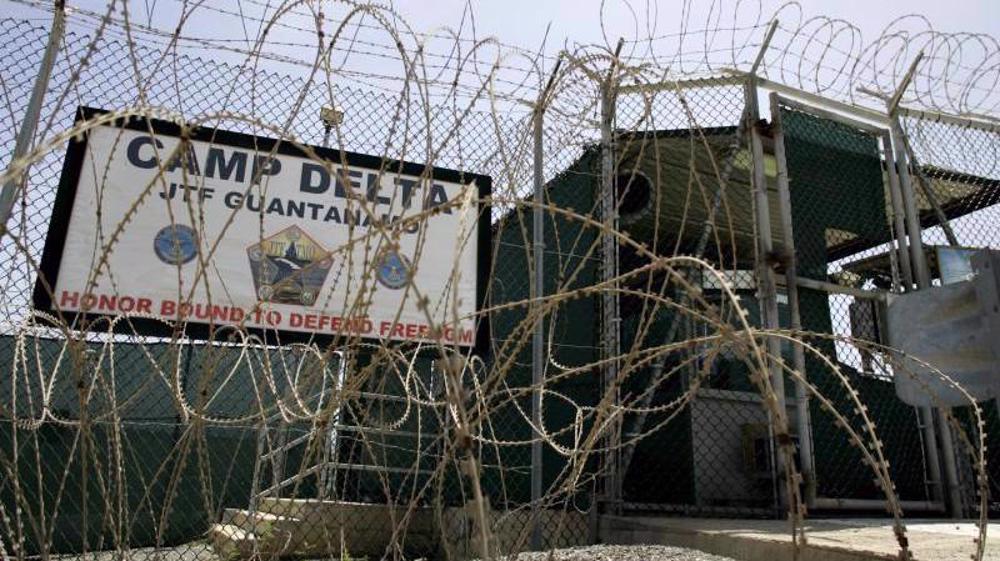

 This makes it easy to access the Press TV website
This makes it easy to access the Press TV website